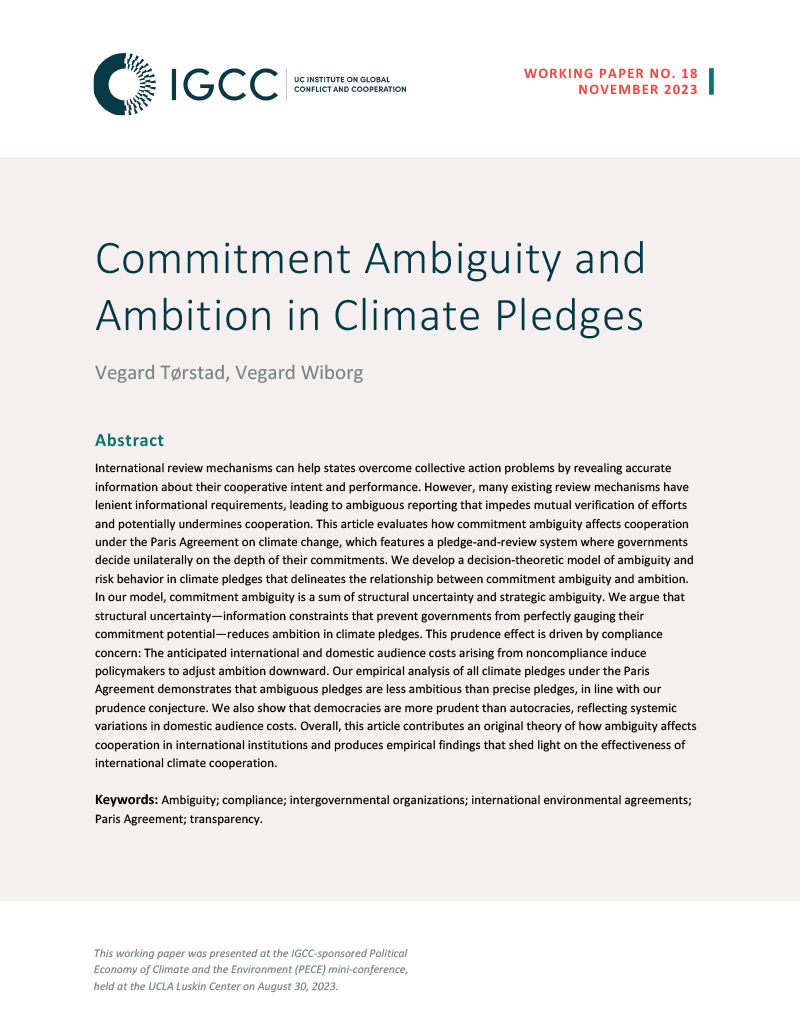Commitment Ambiguity and Ambition in Climate Pledges

In this working paper, Vegard Tørstad and Vegard Wiborg analyze the relationship between commitment ambiguity and ambition in climate pledges, and find that ambiguity incentivizes states to make cautious pledge, translating to higher compliance rates. However, they also suggest that a subset of states that currently have ambiguous targets would pledge even more ambitiously if there were lower levels of ambiguity.
DownloadInternational review mechanisms can help states overcome collective action problems by revealing accurate information about their cooperative intent and performance. However, many existing review mechanisms have lenient informational requirements, leading to ambiguous reporting that impedes mutual verification of efforts and potentially undermines cooperation. This article evaluates how commitment ambiguity affects cooperation under the Paris Agreement, which features a pledge-and-review system where governments decide unilaterally on the depth of their commitments. Vegard Tørstad and Vegard Wiborg, both from the University of Oslo, develop a decision-theoretic model of ambiguity and risk behavior in climate pledges that delineates the relationship between commitment ambiguity and ambition. In their model, commitment ambiguity is a sum of structural uncertainty and strategic ambiguity. They argue that structural uncertainty—information constraints that prevent governments from perfectly gauging their commitment potential—reduces ambition in climate pledges. This prudence effect is driven by compliance concern: The anticipated international and domestic audience costs arising from noncompliance induce policymakers to adjust ambition downward. Their empirical analysis of all climate pledges under the Paris Agreement demonstrates that ambiguous pledges are less ambitious than precise pledges, in line with their prudence conjecture. They also show that democracies are more prudent than autocracies, reflecting systemic variations in domestic audience costs. Overall, this article contributes an original theory of how ambiguity affects cooperation in international institutions and produces empirical findings that shed light on the effectiveness of international climate cooperation.
This working paper was presented at the IGCC-sponsored Political Economy of Climate and the Environment (PECE) mini-conference, held at the UCLA Luskin Center on August 30, 2023.
Thumbnail credit: UN Climate Change.